Paranormal. Supernatural. They’re the same thing, right?
I don’t want to say a flat-out no but…no, not really. Often times these terms are used interchangeably, but they are different.
Paranormal
Paranormal refers to things that are beyond the scope of normal scientific understanding, like telekinesis or telepathy. The word paranormal means, essentially, “something that exists outside of what we consider to be normal.” Talk about a broad subgenre.
The thing that grounds paranormal fiction are the subjects and creatures — werewolves, vampires, ghosts, aliens, time travelers, etc. Anything out of the ordinary that can’t be explained by science and doesn’t fit the conventional expectations of nature. Especially hot right now are paranormal romances. Girl loves vampire. Werewolf loves girl. Boy loves angel. Alien loves human. You get the picture.
Basically, paranormal involves creatures or skills that cannot be examined or explained through science. (X-men, anyone?)Some examples of paranormal books are:
- Twilight, by Stephanie Meyer
- Shiver, by Maggie Steifvater
- The Sixth Sense (movie)
- The Mortal Instruments series, by Cassandra Clare
Now here’s an interesting tidbit…the literary world often considers supernatural to be a subgenre of paranormal, but the word supernatural was first used int he 15th century whereas the term paranormal came out in the 1920s! And it grew out of the concept of supernatural. No matter what, these subgenres are going to overlap. Hopefully that stirs up the muddy waters for you. 😉
Supernatural
Supernatural is similar to paranormal in that the supernatural things are beyond scientific understanding. However it focuses on the supernatural elements that we consider commonplace in our world, like God, Satan, angels, demons, human souls, etc.
Obviously supernatural is a more common subgenre when dealing with religion and Christianity. Topics like resurrection, grace, afterlife, spiritual warfare, etc. are common concepts we ponder as believers in Christ — concepts that are considered supernatural. It only makes sense that it works its way into our fiction.
Some examples of supernatural fiction are:
- This Present Darkness, by Frank Peretti
- The Well Spring Trilogy, by James L. Rubart
- Haflings, by Heather Burch
- The Screwtape Letters, by C. S. Lewis
Both the paranormal and supernatural genres fall more into the horror genre than any other speculative fiction genre. They can be dark and intense, but what do you expect when you’re entering worlds of demons and vampires? Or, to make it feel a little lighter — of angels and aliens?
I had a hard time finding Christian paranormal books. Any recommendations?
Any other favorites in either of these genres we should know about?


Usually I don’t read post on blogs, however I wish to say that this write-up very pressured me to
check out and do it! Your writing style has been surprised me.
Thank you, quite nice post.
Would the Jerusalem’s Undead Trilogy be considered paranormal? Or just supernatural?
The book I’m currently reading “Sanctuary” by Pauline Creedon would fall into the paranormal category. Aliens and Zombies in a Christian end-times thriller. Also, Amish Vampires in Space by Kerry Neitz would fit.
Unfortunately, I haven’t read the Jerusalem’s Undead Trilogy, so I’m unsure. But I’ll put it on my to-read list! Is there anyone else who can chime in on this question? 🙂
Now why in the world didn’t I think of that one, Adam? LOL. Glad you mentioned it! That is certainly a great fit.
I enjoy books with a supernatural thread that relates to spiritual warfare–just a glimpse into what is “beyond”, or what God is doing.
Indie author Hilarey Johnson’s book “Sovereign Ground” does this, as the main character feels she is cursed, and it is clear by the end that she is being pursued by darkness. I recommend it.
You certainly hit the nail on the head when you said, “I had a hard time finding Christian paranormal books.” It’s funny you mention that because my biggest complaint of modern Christian literature is that it is either a Victorian romance and having something to do with the Amish. Why aren’t there more sci-fi / fantasy / paranormal / supernatural Christian books or authors? I think it is a giant, gaping hole in the market just waiting for new authors. Just because I am a Christian doesn’t mean I don’t enjoy sci-fi. What are your thoughts?
I agree that it can be quite tough finding those sci-fi/paranormal/fantasy books. And that’s exactly why Enclave Publishing exists! To fill that need. I think the hole was gaping a few years ago and, while it’s still a hole, it’s not quite as gaping anymore. Now that more Christian speculative fiction books are out there, we just need to make sure the readers-in-wanting find them! 🙂
It’s very interesting to know that speculative fiction has been having trends of tackling fantasy concepts with a respectful connection to their roots in real world religions. With that in mind, I think it would be quite easy to find a Christian fantasy children’s book for my child soon. I’d like her to have a very early start with her faith development so that she wouldn’t struggle with her spirituality later in life.
Wow, thanks for sharing this. I was trying to confirm I write in the correct genre and subgenre.
My fiction are Speculative-Paranormal-SciFy-Suspense. Pen name is Zita Grant. The Veil Awakening, and Pray Or Be Prey.
This post really helped!